EXPERT
Issues
Locations
DOWNLOAD
The VRIC Monitor is a one-of-a-kind, monthly report from SFS tracking extra-regional influence in Latin America. VRIC stands for Venezuela, Russia, Iran, China where Venezuela represents the Bolivarian Revolution and the broader Bolivarian Alliance or ALBA. Likewise, Iran represents the Iranian Revolution and a growing presence of Middle Eastern actors in Latin America, namely its chief proxy, Hezbollah. The monitor is comprised of open source information selected by SFS analysts and fellows. This is not a complete list of media reports on VRIC presence in Latin America, but a snapshot of open-source media highlighting the major areas of VRIC influence.
Overview
The first fissure in the VRIC alliance is potentially emerging as Russia negotiates with the U.S. its position on Venezuela. The recent news that Russia’s state defense contractor Rostec is reportedly reducing its personnel in Venezuela has prompted speculation of a Russian withdrawal of support to Nicolás Maduro. Hanging in the balance are Venezuela’s Interim President Juan Guaidó’s efforts to find a solution to transition to free and fair elections. Meanwhile, Russian Foreign Minister Sergei Lavrov holds talks with his Colombian counterpart Carlos Trujillo about the crisis in Venezuela after earlier talks in May with U.S. Secretary of State Mike Pompeo.
As Russia possibly recedes, China aggressively pursues initiating the region’s first 5G networks next year through its controversial tech company Huawei, moving around the company’s recent ban in the United States. China is currently working with Mexico, Argentina, and potentially, Brazil and Colombia to build telecom infrastructure in Latin America. Even in Venezuela, Huawei is working with the Maduro regime to bring a 4G wireless network to the country as the PRC increases its humanitarian support to Venezuela through two additional shipments of medical supplies in May.
Turkey has continued to increase its diplomatic engagement with Latin America, inaugurating a new Paraguayan embassy in Ankara on May 2nd, followed by a visit to Cuba, Mexico, and Guatemala in mid-May by Turkish Foreign Minister Mevlut Cavusoglu. Turkey’s burgeoning relationship with Iran has introduced a new actor to Latin America, Azerbaijan. While Iran keeps a low profile in the region, Azerbaijan’s recent diplomatic overture to South America and Mexico potentially provides another avenue for the Islamic Republic to advance its proxy networks in the region.
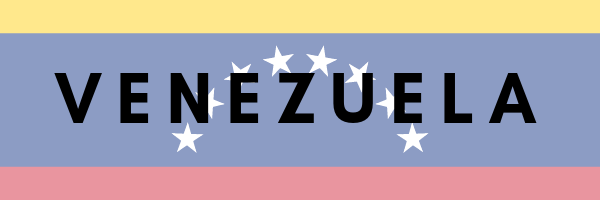
Following the failed civil-military uprising on April 30th led by Interim Venezuelan President Juan Guaidó, Nicolás Maduro increasingly relies on the VRIC alliance and associated illicit networks to remain in power. A new report published by the National Defense University and IBI Consultants outlines Venezuela’s transnational illicit network and criminal typologies that are propping up the Maduro regime in what the author calls the “Bolivarian Joint Criminal Enterprise.” The smuggling of two of Venezuela’s most important commodities, oil and gold, are part of the transnational illicit network propping up the Maduro regime by feeding other Bolivarian members, Cuba and Bolivia, and VRIC allies, namely Turkey. Meanwhile, the U.S. and regional allies are cracking down on corrupt Venezuelan officials tied to illicit activities in the Dominican Republic and Spain.
Cuba continues to use “medical diplomacy” to spread its network throughout the region, as a new report describes Cuban doctors speaking out against the “healthcare missions” from Havana. Lastly, Bolivia has recently militarized its nuclear program through a new agreement between the Bolivian Armed Forces and its nuclear agency, ABEN, as the state-owned telecommunications company, Entel, simultaneously announced that in August the company will use its own fiber-optic cable passing through Peru to the Pacific Ocean.
VENEZUELA AID TRACKER
| United States | $76 million dollars |
| Argentina | Help unit |
| Canada | $39 million dollars |
| Chile | 17 tons of food & medical supplies |
| China | 200 tons of medicine & supplies |
| EU | €65 million euros |
| Germany | €5 million euros |
| Iran | Unspecified pledge & medical aid |
| Italy | €2 million euros |
| New Zealand | $500,000 dollars |
| Palestine | Surgical team |
| Russia | 335 tons of food & medical supplies |
| Spain | €2 million euros |
| Sweden | $7 million dollars |
| Taiwan | $500,000 dollars |
| Turkey | Pledged, but none specified |
| UAE | Dh10 million |
| UK | £6.5 million pounds |
- To tempt senior Venezuelan officials to turn on their president, opposition leaders recently turned to a wealthy Venezuelan businessman wanted in Florida, Raul Gorrín, for allegedly laundering billions of dollars for top regime figures. – The Wall Street Journal on 27-MAY
- The U.S. is preparing measures ranging from criminal charges to sanctions against people it believes to be involved in Venezuela’s military-run emergency food program, according to U.S. officials, part of an effort to target what they describe as a large-scale money-laundering operation run by the government. – The Wall Street Journal on 21-MAY
- Venezuela sold about $570 million in gold from Central Bank reserves over the past two weeks, skirting U.S. Treasury sanctions designed to freeze assets of the Nicolás Maduro regime, according to people with knowledge of the matter. The Central Bank sold about 9.7 tons of gold on May 10th and an additional 4 tons three days after, the people said, driving its reserves down to a 29-year low of $7.9 billion. – Bloomberg on 17-MAY
- The Venezuelan Intelligence Service hijacked an oil tanker and forced the captain and crew to change the ship’s course to Cuba. The satellite tracking was cut off to avoid detection and the tanker is now on the Caribbean island. – Infobae on 14-MAY (content in Spanish)
- Dominican officials say drug and money-laundering investigators joined by U.S. federal agents have raided a villa linked to one of Venezuela’s richest men. Billionaire Samark López Bello was recently indicted by federal prosecutors in New York for allegedly violating sanctions on Venezuela. He has close ties to former Venezuelan Vice President Tareck El Aissami, who is accused by the U.S. of links to Hezbollah and drug traffickers.- Fox News on 13-MAY
- Spanish police have arrested former Venezuelan Minister Javier Alvarado Ochoa on a U.S. warrant as part of an investigation into money-laundering involving the Latin American nation’s state oil company PDVSA, court officials said. – Reuters on 10-MAY
- On May 10th, the Trump administration expanded the scope of its Venezuela sanctions to the defense and security services sectors to crank up economic pressure on Nicolás Maduro. – Yahoo on 10-MAY
- Venezuela now finds its business partnership with Turkey in the crosshairs of several law enforcement organizations around the world. Investigators from at least three countries, including the U.S., believe Venezuela’s gold and food trade with Turkey has evolved into a multilayered scheme built on a foundation of criminality. – Bloomberg on 25-APR
- Cocaine trafficking from Venezuela to the United States is soaring, even as the country collapses. U.S. and other regional officials say it is Venezuela’s own military and political elite who are facilitating the passage of drugs in and out of the country on hundreds of tiny, unmarked planes. A CNN investigation traced the northward route of cocaine and found that the number of suspected drug flights from Venezuela rose from about two flights per week in 2017 to nearly daily in 2018, according to one U.S. official. – CNN on 17-APR
THE ALBA
- On May 30th, Nicaragua’s government released 50 prisoners detained during protests to house arrest as an agreed-upon deadline to release all such inmates approaches. – AP News on 30-MAY
- Nicaragua erupted into a national strike on May 23rd to protest against President Daniel Ortega, whom the opposition urges to release “political prisoners” and respect human rights. Although the government threatened to take measures against those striking, the closure of businesses was noticeable. – El Salvador on 23-MAY (content in Spanish)
- On May 22nd, the Bolivian Armed Forces and the Bolivian Nuclear Energy Agency (ABEN) signed an Inter-Institutional Cooperation Agreement that guarantees the security and protection of its strategic installations and technology from the Center of Investigation and Development in Nuclear Technology, built in El Alto. The agreement was signed by the commanding officer of the Center of Investigation and Development in Nuclear Technology, General William Kaliman and Director General of ABEN, Hortensia Jiménez. – Ministry of Defense in Bolivia on 22-MAY (content in Spanish)
- The manager of the National Telecommunications Business (Entel) in Bolivia, Mauricio Altovez, announced on May 22nd that, starting in August this year, Entel will be operated by its own fibre-optic to the Pacific Ocean. He explained that this cable, which is a transmission technology that is usually used in data networks and telecommunications, will extend from the ground in Peru to connect to the global network through the Pacific. – EJU TV on 22-MAY (content in Spanish)
- Cuba has long been known for its medical diplomacy – thousands of its doctors work in healthcare missions around the world, earning the country billions of dollars in cash. But according to a new report, some of the doctors themselves say conditions can be nightmarish – controlled by minders, subject to a curfew, and posted to extremely dangerous places, James Badcock reports. – BBC News on 14-MAY
- Cuba will ration sales of basic goods, officials said, as tighter U.S. sanctions and the economic implosion of key ally Venezuela puts further pressure on the Communist regime to import food staples. Commerce Minister Betsy Díaz said the government would ration items including eggs, cooking oil, chicken, sausage, and soap amid widespread shortages that have caused anxiety and panic buying. Cuban officials blame the shortages on the Trump administration’s hardening of the trade embargo, but economists say the island’s economy has also been hit hard by reduced shipments of subsidized oil from Venezuela. – The Wall Street Journal on 12-MAY
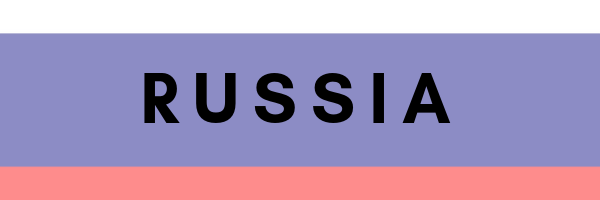
The recent news that Russia’s state defense contractor, Rostec, is reducing its personnel in Venezuela has prompted speculation of a Russian withdrawal of support to Maduro. Rostec responded that the number of its personnel in Venezuela was “overestimated” by media reports. Meanwhile, Moscow has recently increased its commercial relations with Caracas through a new agreement with Russia’s Federal Service for Veterinary Phytosanitary Surveillance, Rosselkhoznadzor. Earlier in May, Foreign Minister Sergey Lavrov met with U.S. Secretary of State Mike Pompeo to discuss the Venezuela crisis, as Russia and Venezuela advanced talks to turn to non-dollar denominated trade transactions, including increased use of the Petro, a Venezuelan state-based, oil-backed cryptocurrency. While the U.S. focuses on Russia’s actions in Venezuela, Russia continues to expand its presence throughout South America as Suriname becomes the latest country in the continent to implement a new bilateral visa-free travel agreement.
- Russian state media reports that Rostec said media overestimated the number of Russian state-owned technology conglomerate Rostec staff working in Venezuela “by dozens,” referring to the Wall Street Journal article, below. The company’s press service continued, stating “the composition of our presence [in Venezuela] has remained unchanged for many years.” – Sputnik on 03-JUNE
- Russia has withdrawn key defense advisers from Venezuela, an embarrassment for Nicolás Maduro as Moscow weighs the leader’s political and economic resilience against growing U.S. pressure. – The Wall Street Journal on 02-JUNE
- According to Russian state media, Russians need no entry visas to visit all the 12 South American countries now that a bilateral visa-free travel agreement with Suriname came into effect, Russian Foreign Ministry’s official spokeswoman Maria Zakharova said. According to Zakharova, visa-free travel between Russia and South American countries opens wide possibilities for the development of business, cultural, humanitarian, and tourist contacts. – TASS on 23-MAY
- On May 22nd, Russia and Venezuela established an agreement allowing the Russian government to export bird meat, beef, and pork to Venezuela. – AviNews on 22-MAY (content in Spanish)
- Venezuela’s insistence on promoting the Petro, the oil-backed cryptocurrency, might finally be paying off. Their UN representative, Jorge Valero, revealed the country is in talks with Russia to potentially use the currency for mutual trade settlements. In an interview with Russia Today, Valero suggested that Venezuela was exploring the possibility, along with an alternate plan to use the Russian ruble. – CoinGeek on 21-MAY
- Russia marketed defense products and weapons in South America at SITDEF in Peru on May 17th. Rosoboronexport, Russia’s state owned arms export company, organized a single Russian display at SITDEF 2019 defense exhibition in Lima, Peru. – Army Recognition on 17-MAY
- U.S. Secretary of State Mike Pompeo said he urged his Russian counterpart, Russian Foreign Minister Sergey Lavrov, to reconsider and agree that the “time has come for Nicolás Maduro to go.” The U.S. has been critical of Russia for propping up Maduro’s regime; however, Russia still recognizes Maduro as Venezuela’s legitimate leader and has forces in Venezuela as part of a longstanding military partnership, and in March, sent about 100 more Russian personnel. – CBS News on 14-MAY
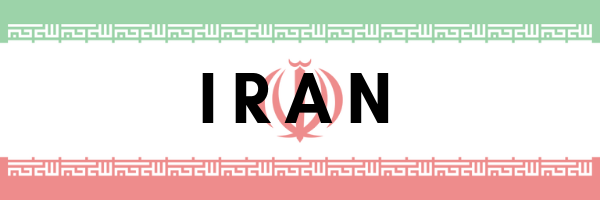
Iran continues to keep a low profile in Latin America and prefers to work through its proxies and allied VRIC nations, possibly Turkey and a new actor in Azerbaijan, to increase its reach into the region. Turkey’s Foreign Minister Mevlut Cavusoglu took a diplomatic tour of the region in May, inaugurating a new building for its embassy in Guatemala, visiting Cuba and Mexico, and celebrating the opening of Paraguay’s first embassy in Ankara, while setting up a possible trip by Turkish President Tayyip Erdogan to Latin America later this year.
As Iran shifts toward a North-South corridor to build a land bridge between its allies Turkey and Russia, Azerbaijan is increasingly a key player being courted by the Islamic Republic. This potentially brings a new partner to the VRIC alliance as Azerbaijan begins its diplomatic outreach to several South American countries and Mexico. Cuba, however, continues to be the common denominator for Iran and Turkey, with Havana extending diplomatic ties to Tehran in May and announcing further trade cooperation with the Islamic Republic. Iran also reached out to Ecuador last month to expand environmental cooperation. This regional outreach by Iran comes after non-oil commodities trade with Latin America has diminished more than 20% in the last fiscal year according to the latest data released by Iran’s Customs Administration.
- Iranian state media reports that Iran Vice-President and the head of the Department of Environment (DoE) Isa Kalantari exchanged views with Ambassador of Ecuador to Iran Ortega Almeida on ways to expand cooperation on protection of the environment. – IRNA on 21-MAY
- Iran traded 1.1 million tons of non-oil commodities worth $816.76 million with Latin American countries in the last fiscal year (ended March 20th, 2019) to register a 22.28% and 29.88% decline in tonnage and value, respectively, compared to the year before. Latest data released by the Islamic Republic of Iran Customs Administration show Iran’s exports totaled 43,491 tons worth $27.17 million during the year, indicating a 78.78% and 61.19% reduction in tonnage and value, respectively, year-on-year. – Financial Tribune on 19-MAY
- Iranian state media reports that Iran and Cuba should increase their cooperation in all fields, Iranian head of Iran-Cuba Parliamentary Friendship Group Mohammad Reza Mansouri said while referring to the U.S. pressures on both countries. He made the remarks in a meeting with Cuban Ambassador to Iran Alexis Bandrich Vega. – Islamic Republic News Agency on 13-MAY
AZERBAIJAN
- Iranian state media reports that Azerbaijan’s Foreign Minister Elmar Mammadyarov exchanged congratulatory letters with Paraguay’s Foreign Minister Luis Alberto Castiglioni on the occasion of the 15th anniversary of diplomatic relations between the two countries. Moreover, Mammadyarov received heads of diplomatic missions of Mexico, Colombia, Peru, and Chile on May 21st. At the meeting, the minister appreciated the observer status granted to Azerbaijan at the Ministerial Council meeting of the Pacific Alliance (PA) in Mexico City on May 10th and noted that PA is a vital platform for the development of regional trade relations. – Trend News Agency on 22-MAY and 21-MAY
HEZBOLLAH
- While Iran suffers under sanctions, Hezbollah is not necessarily suffering. Joseph M. Humire, Executive Director of the Center for a Secure Free Society, which analyzes terrorism issues in Latin America, said in an interview that Hezbollah plots and activities have noticeably increased throughout the region over the past few years. With sanctions and a cash crunch, he said, look for that trend to increase. – The Federalist on 24-MAY
- A three part interview with Radio Televisión Martí dives into the historical and familial background of Venezuelan Minister Tareck El Aissami and his role in facilitating Hezbollah’s infiltration of Venezuela. – Radio Televisión Martí, part 1 (one), part 2 (two), and part 3 (three) on 13-MAY (content in Spanish)
TURKEY
- Turkish state media reports that Turkey’s foreign minister inaugurated the new building of Turkish embassy in Guatemala. Addressing the opening ceremony, Mevlut Cavusoglu said: “Guatemala is one of the most important strategic partners of Turkey in Latin America.” Bilateral ties between the two countries are boosting in every field, including trade and culture, he added. – Andalou Agency on 21-MAY
- Cuban state media reports that the Minister of Foreign Affairs of Turkey, Mevlut Cavusoglu, visited Cuba on Friday, May 17th on an official visit. The head of the Turkish diplomacy was received by Cuban National People’s’ Power Assembly (Parliament) President Esteban Lazo. Cavusoglu also expected to meet with his Cuban peer Bruno Rodriguez, who carried out an official visit to Turkey in 2017. Cuba and Turkey are celebrating 67 years of diplomatic relations. – Prensa Latina on 17-MAY
- Turkish state media reports that on May 2nd, Paraguay opened its first embassy in Turkey’s capital, Ankara. The opening ceremony was attended by Turkish Foreign Minister Mevlut Cavusoglu and his Paraguayan counterpart Luis Alberto Castiglioni. Cavusoglu stressed bilateral relations between Turkey and Paraguay in the opening ceremony. He hailed the efforts on increasing economic and commercial relations with Paraguay and added that Turkey’s President Recep Tayyip Erdogan is due to pay an official visit to Paraguay in December. – Andalou Agency on 02-MAY
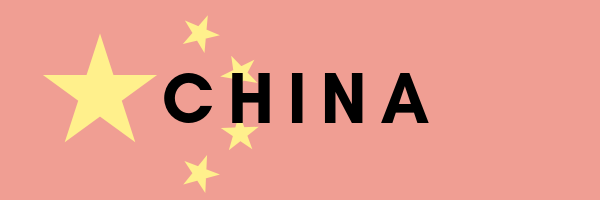
The Trump administration’s efforts to work with international allies to exclude the Chinese technology firm Huawei from 5G telecom systems, comes to Latin America. A recent piece in Foreign Affairs outlines this battle, as Huawei comes under fire following President Trump’s ban on the Chinese tech company in the U.S. citing national security concerns. Eager to jump into this battle, amidst Venezuela’s struggle to obtain basic necessities, Nicolás Maduro announced that Huawei will help bring a 4G wireless network to Venezuela. Meanwhile, neighboring Colombia establishes a bidding process that heavily favors the Chinese tech company. Mexico and Argentina plan to initiate the regions first 5G networks next year with Huawei’s help, and Brazil is expected to follow in 2021.
This face-off between the U.S. and China in Latin America faces other fronts, as the PRC accuses the U.S. of interfering in its diplomatic outreach to the Dominican Republic and the U.S. challenges China’s increasing humanitarian aid to Venezuela. Since March 29th, China has sent at least three shipments of medical supplies to Venezuela, with two of those shipments arriving in May. Finally, on May 17th, Admiral Miao Hua of the Chinese Central Military Commission visited Raul Castro in Havana, while North Korea continues to build strong ties with Cuba.
- Nicolás Maduro announced his regime would invest “immediately” into Chinese telecommunications giants Huawei and ZTE to bring a 4G wireless network to the country, which is suffering chronic shortages of food, medicine, electricity, and gasoline under his rule. – Breitbart on 24-MAY
- China’s Embassy in the Dominican Republic accused the United States of trying to interfere in its relations with the Caribbean nation. In a brief statement, the Chinese Embassy complained about comments it said the acting president of the Overseas Private Investment Corporation (OPIC), David Bohigian, had made during a visit to the Dominican Republic. – Reuters on 23-MAY
- On May 22nd, Brazilian wireless carrier TIM Participacoes SA said it is using equipment provided by China’s Huawei Technologies Co Ltd to conduct fifth-generation wireless technology (5G) tests in Florianopolis, a city in the south. – Reuters on 22-MAY
- The Embassy of the United States in Colombia met with the director of the National Training Service (SENA), Carlos Mario Estrada, to express its worry over one of the biggest technology bids in Latin America. In this meeting, U.S. officials told Estrada that the documents are rigged to help the technological giant Huawei win the million dollar contract and prevent other North American companies from participating in the bidding process. – W Radio on 22-MAY (content in Spanish)
- Chinese state media reports that Raul Castro met with Admiral Miao Hua, member of China’s Central Military Commission (CMC) and director of the CMC Political Work Department, in Havana, Cuba on May 16th. On May 14th, Admiral Miao Hua and his entourage also held talks with Army Corps General Leopoldo Cintra Frias, Minister of the Cuban Revolutionary Armed Forces, and toured some military units in Cuba. – China Military on 17-MAY
- China has sent a third airplane carrying humanitarian aid to Venezuela as part of the “humanitarian-technical” cooperation agreement. The plane landed in Caracas, on Thursday, May 16th, with 64 tons of medicine and medical supplies, including surgical equipment, helmets, gauze, compresses, and adhesives destined for public hospitals. This follows Turkish state media reports that a second airplane from China carrying 71 tons of medicine and medical supplies arrived in Venezuela on May 13th as part of a “humanitarian-technical” cooperation agreement between Nicolás Maduro and China. – El Espectador on 17-MAY (content in Spanish) and Hurriyet Daily News on 14-MAY
- Senator Arturo Murillo from Cochabamba, Bolivia, denounced the Chinese business Sinohydro, reporting that they abused their highway rehabilitation contract, repairing the road for the “enormous sum” of 103 million bolivars, which is approximately $14.5 million USD. Previous administrations have stated it only costs between $350,000 and $500,000 USD to maintain. – El Deber on 15-MAY (content in Spanish)
NORTH KOREA
- North Korean state media reports that Ma Chol Su, Ambassador Extraordinary and Plenipotentiary of the Democratic People’s Republic of Korea (DPRK) to the Republic of Cuba, paid a courtesy call to José Ramón Saborido Loidi, Minister of Higher Education, at the office building of the Ministry of Higher Education, the Republic of Cuba on May 7th. – KCNA Watch on 14-May
- State news media reports that North Korea has expressed support for the Venezuelan people in their struggle to protect sovereignty in connection with a recent attempt at an anti-government coup in Venezuela, TASS reported referring to Rodong Sinmun newspaper. Rodong Sinmun newspaper has published a statement of the official representative of the North Korean MFA. – Armenian News on 06-MAY
Disclaimer: The VRIC Monitor does source a limited amount of media reports from state-owned or -controlled media outlets from VRIC nations. These media reports are carefully selected and solely intended to report on cultural, diplomatic, economic, or military activities that are not reported on by other media and relevant for understanding VRIC influence in the region. Given the inevitability that state propaganda will be mixed into these articles, we ensure that reporting from state-media outlets is no more than 20 percent of the overall VRIC Monitor and exclude any opinion pieces or anti-US (anti-West) declarations of any kind.


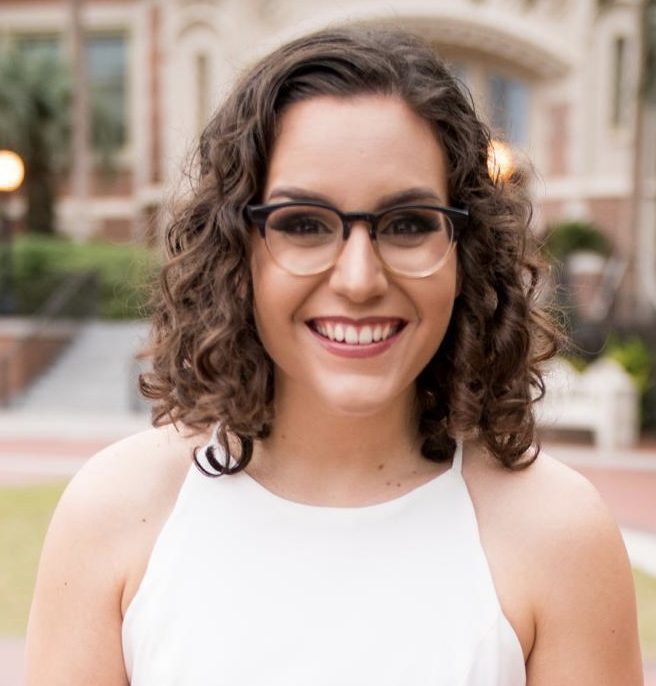 Christina Armes Hunter
Christina Armes Hunter